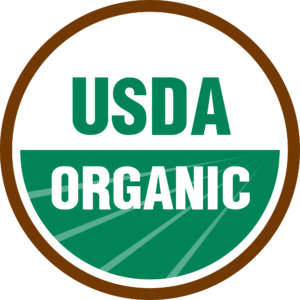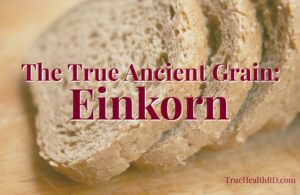There is not doubt that there has been an increase in food-awareness the past few years. We’re more cautious about how our food is grown, handled, processed, packaged and delivered. Packaging with tricky green and earthy toned colors can convince us that something is healthy when, in reality, it’s far from it.
If you’re feeling safe behind the FDA organic label, you may be in for a little surprise. When it comes to certain products, organic isn’t what it’s cracked up to be.
Of course there are obvious times you should avoid organic – when purchasing organic chips, fruit snacks, cookies or pastries and sometimes, organic protein bars. The problem lies with our eyes. We feel like if we grab the mother bag of chips in the healthy section or grab the homemade organic fruit tape at the farmer’s market that it gives us the green light to eat how much we want and whenever we want.
Wrong.
The majority of these products are made with empty calorie (low nutrient) foods that are like that naturally: corn, potato, tapioca, cain sugar, etc. These organic products are still low in fiber, high in salt, high in the not-so-good fats (like canola) & high glycemic much like their commercial counterparts. Organic or not, by opting for these products you’re not doing your insulin levels or waistline any favors.
The #1 Time to Avoid Organic…
…when purchasing wheat anything. The problem with wheat is how it’s grown. The wheat (b read, crackers, cereals, pastas, cookies, pastries, etc) on the shelves isn’t the same wheat our parents or grandparents ate.
read, crackers, cereals, pastas, cookies, pastries, etc) on the shelves isn’t the same wheat our parents or grandparents ate.
Over the years the wheat plant has been hybridized (not GMO) much like how the Honeycrisp apple came into existence – it was cross-pollinated (hybridized) with the golden delicious and the Honeygold, and the Macounwith.
Scientist had long been trying to figure out how to make harvesting wheat easier & by 1980 they found a way. Which made wheat puffier (when turned into a flour & baked), faster growing producing far more than the original wheat: Einkorn. However, this hybridization process, done over and over and OVER through the years has created a brand new strain of gluten that is not like any other strand found in nature. Ever. This new strain of wheat is now believed to be the leading cause of inflammation in the world today (since over 80% of the world adopted this type of hybridized strain of wheat in the late 1980’s-1990’s) and there is an emerging spike in gluten intolerance & celiac disease.
Here is why it’s confusing…
Hybridizing is not done by genetic engineering. It is a “natural” occurrence of the blending of seeds. Now, did man have their hands in this to help with the hybridizing? Of course. But it’s still not considered GMO because they’re not specifically manipulating the genes of the seed. Therefore, the organic labeling is pretty much useless when it comes to the wheat grain. One thing the organic label is telling you is that it’s not genetically modified and has been treated/handled with as minimal processing with the safest harvesting practices possible.

When you buy organic wheat you’re getting less harmful pesticides but you’re not getting better quality wheat that is easier on your digestive system & not linked to inflammation and disease. Whether you’re eating organic wheat or not you’re still getting the harmful hybridized wheat that can cause intestinal inflammation, brain fog, digestive issues, bloating, fatigue, joint pain, and so on.
So what do you do? Avoid it – anything made from wheat, by wheat or with wheat. Just bite the bullet & do it – your body will thank you.
How do you ask? Replace all your wheat containing foods with starchy (minimally) & non-starchy vegetables (primarily). Read more on the right way to remove gluten from the diet (without gaining weight, like I did!).
Are there any good healthy grains anymore?

Yep – it’s Einkorn wheat. Einkorn is the ancient grain you’re looking for – these grains that have not been hybridized, crossbred or messed with (only turned into a flour so we can enjoy it!) – and even this process is more gentle than with whole wheat or bread grains.
According to Dr. Axe:
Einkorn can help:
- Reduce the risk of eye disease
- Help with weight-loss
- Limit allergy symptoms
- Prevent the risk of disease
- Reduce the risk of type 2 diabetes
And contains less gluten! I still believe a well balanced diet is primarily plants but by golly, when I’m in need of a hearty sandwich every now & then. It’s nice to have a truly clean (& tasty) alternative.
Do you know of anyone who loves their bread but needs to eliminate it? Share this article with them & hopefully they’ll jump on board the real-food bandwagon! 🙂
References:
Davis, William. Wheat Belly: Lose the Wheat, Lose the Weight and Find Your Path Back to Health. London: Harper Thorsons, 2015. Print.
http://www.einkorn.com/is-einkorn-flour-gluten-free/
Dr. Josh Axe, Einkorn Flour, The Superior Ancient Grain


